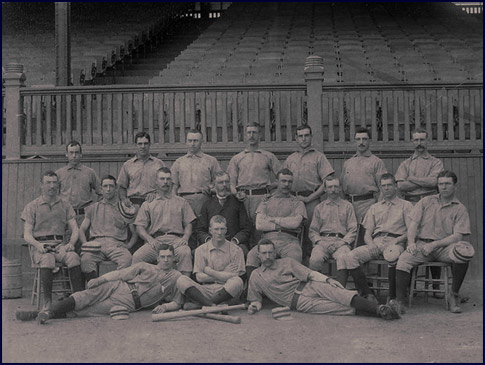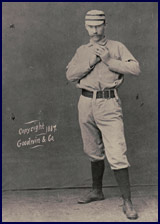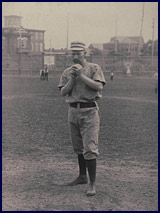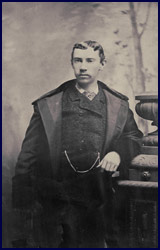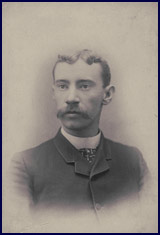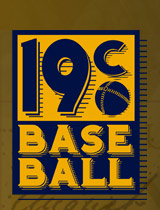Charlie Ferguson
1863–1888
By Eric Miklich
HARLIE FERGUSON was the Philadelphia Phillies’ first star pitcher but his untimely death in 1888, allowed Ferguson only four National League seasons. Born on April 1, 1863, Charlie Ferguson made his debut on May 1, 1884, for the then Philadelphia Quakers. He would win 99 games in his career, never winning less than 21 games in any season. Ferguson would strikeout two and one half batters for every one that he walked, and finished with a career earned run average of 2.67. He twice pitched over 400 innings in a season, including his rookie season and would average 378½ innings per year.
On August 29, 1885, he pitched the first no-hitter in Phillies history with a 1–0 win over the Providence Grays. In 1886, the year before many major pitching rule changes were instituted, he had his finest season. Ferguson won 30 games and lost only nine. His ERA of 1.98 was second best in the National League and the Phillies won 15 more games than the previous season.
In Ferguson's final season the Phillies would finish in second place, 3.5 games behind the eventual “World Series” winners, the Detroit Wolverines. His 22 wins in 1887, were not the only reason for the teams's great finish. Philadelphia's manager, the legendary player and strategist Harry Wright, saw the hitting potential of Ferguson. Towards the end of the season, Wright decided that Ferguson was too good a hitter to play only when he pitched. Wright decided that Ferguson would play second base for the final eight weeks of the season, replacing two players who hit a combined .214.
Philadelphia would win 16 and tie another in their final 17 games to move ahead of the Chicago White Stockings into second place. Playing every day allowed Ferguson to drive in a team-leading 85 runs in only 264 at bats, or one RBI for every 3.1 at-bats. He would hit .337, which also led the team and was fourth best in the National League.
During spring training in 1888, Charlie Ferguson contracted typhoid fever. He died on April 29th. Charlie Ferguson was 25 years old.
